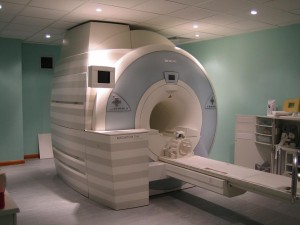 A placebo studies program requires research that successfully moves between the laboratory and the bedside. Clarifying the neuroscientific mechanisms underlying placebo effects and the patient-physician relationship has inherent scientific importance. It also provides the evidence needed to broaden our health care system’s appreciation for the importance of the ritual of treatment and the context in which clinical care is performed. Additionally, the results of neuroscientific research have the potential to provide critical guidance to clinical research. With these goals:
A placebo studies program requires research that successfully moves between the laboratory and the bedside. Clarifying the neuroscientific mechanisms underlying placebo effects and the patient-physician relationship has inherent scientific importance. It also provides the evidence needed to broaden our health care system’s appreciation for the importance of the ritual of treatment and the context in which clinical care is performed. Additionally, the results of neuroscientific research have the potential to provide critical guidance to clinical research. With these goals:
- We have performed high profile neuroimaging studies clarifying the brain mechanisms of placebo analgesia.
- With a recent award of NIH funds, we have established a laboratory to detect molecular signatures (including genomics) of placebo responses.
- We are currently examining the neural mechanisms by which expectations and the patient-provider relationship can modulate the treatment outcomes in patients with chronic pain syndromes.
- We have begun a series of innovative experiments examining the neurobiology of physicians while they treat patients, a novel approach to placebo research that has the potential to significantly enhance our knowledge of the patient-provider relationship. The first study to be completed was published in Molecular Psychiatry in 2013.
- We have recently been awarded a large NIH grant that will use cutting edge positron emission tomography (PET) to distinguish placebo neurological pathways associated with opioid and non-opioid medications.
- We have identified a subset of genes that may help us to identify in advance who is likely to be a placebo responder.
Related publications:
Wang R, Hall KT, Giuliani F, Passow D, Kaptchuk TJ, Loscalzo J. Network analysis of the genomic basis of the placebo effect. JCI Insight June, 2017
Hall KT, Loscalzo J, Kaptchuk TJ. Genetics and the placebo effect: the placebome. Trends in Molecular Medicine 2015
Jensen KB, Petrovic P, Kerr C, Kirsch I, Raicek J, Cheetham A, Spaeth R, Cook A, Gollub RL, Kong J, Kaptchuk TJ. Sharing pain and relief: neural correlates of physicians during treatment of patients. Mol Psych 2013
Hall KT, Lembo AJ, Kirsch I, Ziogas DC, Douaiher J, et al. Catechol-O-Methyltransferase val158met Polymorphism Predicts Placebo Effect in Irritable Bowel Syndrome. PLoS One 2012; 7: e48135.doi10.1371/journal.pone.0048135.
Jensen KB, Kaptchuk TJ, Kirsch I, Raicek J, Lindstrome KM, Berna C, Gollub RL, Ingvare M, and Kong J. Nonconscious activation of placebo and nocebo responses. PNAS 2012: 109: 15959-64
Kokkotou E et al. Serum correlates of the placebo effect in irritable bowel syndrome. Neurogastroent Motilty 2010; 22:285-e81.
Kong J et al. An fMRI study on the neural mechanism of hyperalgesic nocebo effect. J Neurosci 2008; 28: 13354-62.
Kong J et al. Brain activity with expectancy-enhanced placebo analgesia as measured by fMRI. J Neurosci 2006; 26: 381-88.
Hall KT, Loscalzo J, Kaptchuk TJ. Genetics and the placebo effect: the placebome. Trends in Molecular Medicine 2015





